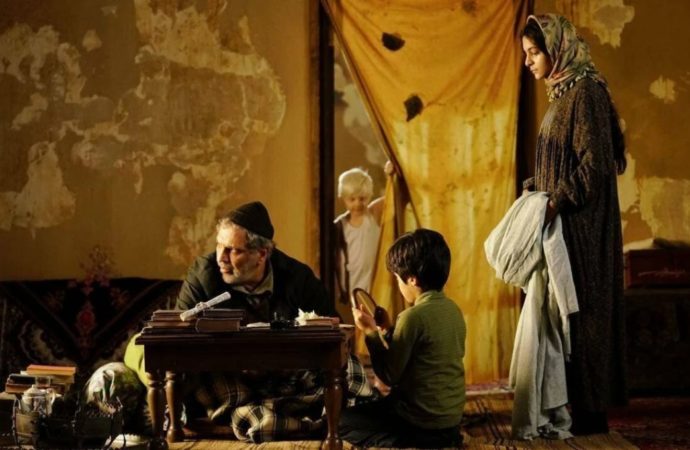The expectation was immense, the name of Francis Ford Coppola in the credits of Megalopolis already drew applause at the press screening at the 77th Cannes Film Festival. However, the result could not have been more disappointing, as a very long, boring, and incoherent string of pretentiousness and ranting left the audience stunned, although the abyssal gap that opened up in his filmography after Dracula (1992) made it possible to foresee the fiasco.
With more stars than in the sky, some brilliant in their caricature, such as Aubrey Plaza (Wow Platinum) or Giancarlo Esposito (Mayor Franklyn Cicero), either defending the banner as Jon Voight (Hamilton Crassus III) or taking his role as Caesar Catiline (Adam Driver) ridiculously seriously —and we’re speechless for the acting and writing of Shia LaBeouf‘s character— Megalopolis is a tedious combination, whose deliberate and desperate search for originality provokes one of the worst hangovers.
The comparison of the state of the Union with the Roman Empire, its decadence, and the spark of hope in an improvable world, including the comic Roman onomastics, the Shakespearean references, together with a retro-futuristic aesthetic, which fuses art deco with the Versace delirium of the nouveau riche, in a hemorrhage of gold, fretwork, and a cataract of clichés and nonsense (such as Caesar Catiline’s paranormal powers) is as ineffective as its special effects, all together providing an erratic sensation of a lack of rhythm, of decision, of an accumulation of resources and ideas (even genres) without a filter, which draws from too many sources without managing to create a new, original narrative, which successfully conveys a noble desire for political critique. Historical drama, personal tragedy, greed, political greed, the ambition of the ruthless journalist, the degeneration of the descendants, and venal sex intertwine, merge, and explode, mutually deactivating all capacity for emotion, empathy, and admiration on the part of the spectator, who can only wish to be sheltered from such a bombardment.
Catiline is too much like an Ayn Rand character and lacks the ‘flesh’ to make us cheer unconditionally for the Nobel Prize-winning architect-hero, savior of the empire, despite his alcoholism and feet of clay. The story of love and redemption smells as much of mothballs as the rest of the plots, and there are too many fingers on one hand to count the few moments when we don’t want to get up from our seats during those 138 minutes that only keep us attentive to the screen out of a strange mixture of nostalgia for excellence and hope that something is going to get better.
And what about the voice-over? The pretentious narrator with his apocalyptic tone prepares us for a superhero movie —check it out in the trailer—, we don’t know if he’s serious or joking, if he’s trying to impress us or to show off his irony. However, the first scene of Megalopolis leaves us expectant and… minutes later, it’s all said and done in a bizarre film, which we won’t call unclassifiable, but out of date. Written in the 1980s, after the bankruptcy of One from the Heart, pre-production began in 2001, stopped in 2007, and resumed in 2019, but the creative spirit that inspires it is not that of a Godard, Varda, or Bellocchio.
Perhaps it would have been incomparably more audacious to tell the story of an old man who has seen better days, who has broken all the schemes of a millionaire business in his youth, challenging the Hollywood establishment in a battle from which he emerged victorious, Oscar-winning and revered. This story of a career that abandoned the new path to success —an unexplored path that he was inventing together with his generation mates, while they were filming him— to start again with the freedom that comes with recovered fortune and independence would have been the film I would have liked to have seen. To follow the evolution of Francis Ford Coppola, from Jack (1996) to Megalopolis (2024), the risk, the entrepreneurial adventure outside the industry, the support for his family’s career, and the arrogance of a personal gamble (120 million dollars) in a display of messianism, with an investment that could have found a better destiny, would also be the chronicle of an (artistic) empire in decline, clinging to a world that does not exist within a creative universe that has regressed.









No one has posted any comments yet. Be the first person!